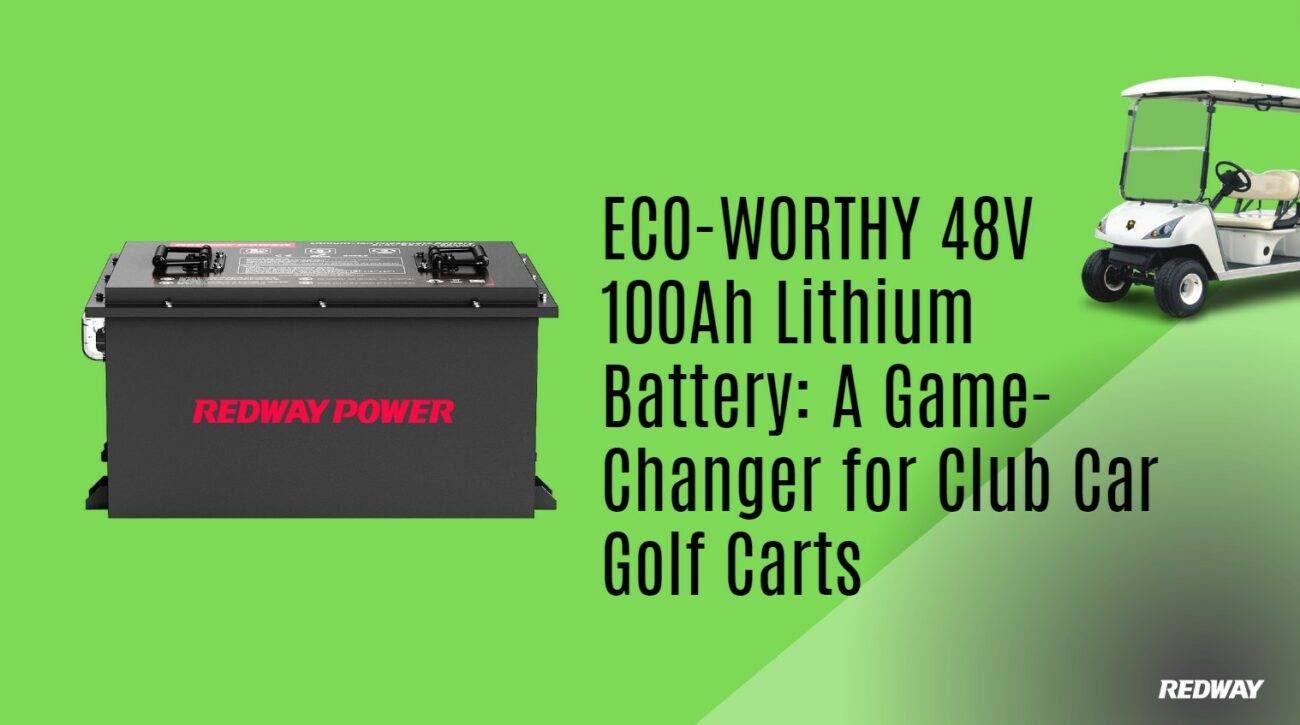- Forklift Lithium Battery
-
48V
- 48V 210Ah
- 48V 300Ah
- 48V 420Ah (949 x 349 x 569 mm)
- 48V 420Ah (950 x 421 x 450 mm)
- 48V 456Ah
- 48V 460Ah (830 x 630 x 590 mm)
- 48V 460Ah (950 x 421 x 450 mm)
- 48V 460Ah (800 x 630 x 600 mm)
- 48V 460Ah (820 x 660 x 470 mm)
- 48V 500Ah
- 48V 560Ah (810 x 630 x 600 mm)
- 48V 560Ah (950 x 592 x 450 mm)
- 48V 600Ah
- 48V 630Ah
-
48V
- Lithium Golf Cart Battery
- 12V Lithium Battery
12V 150Ah Lithium RV Battery
Bluetooth App | BCI Group 31
LiFePO4 Lithium
Discharge Temperature -20°C ~ 65°C
Fast Charger 14.6V 50A
Solar MPPT Charging - 24V Lithium Battery
- 36V Lithium Battery
- 48V Lithium Battery
-
48V LiFePO4 Battery
- 48V 50Ah
- 48V 50Ah (for Golf Carts)
- 48V 60Ah (8D)
- 48V 100Ah (8D)
- 48V 100Ah
- 48V 100Ah (Discharge 100A for Golf Carts)
- 48V 100Ah (Discharge 150A for Golf Carts)
- 48V 100Ah (Discharge 200A for Golf Carts)
- 48V 150Ah (for Golf Carts)
- 48V 160Ah (Discharge 100A for Golf Carts)
- 48V 160Ah (Discharge 160A for Golf Carts)
-
48V LiFePO4 Battery
- 60V Lithium Battery
-
60V LiFePO4 Battery
- 60V 20Ah
- 60V 30Ah
- 60V 50Ah
- 60V 50Ah (Small Size / Side Terminal)
- 60V 100Ah (for Electric Motocycle, Electric Scooter, LSV, AGV)
- 60V 100Ah (for Forklift, AGV, Electric Scooter, Sweeper)
- 60V 150Ah (E-Motocycle / E-Scooter / E-Tricycle / Tour LSV)
- 60V 200Ah (for Forklift, AGV, Electric Scooter, Sweeper)
-
60V LiFePO4 Battery
- 72V~96V Lithium Battery
- Rack-mounted Lithium Battery
- E-Bike Battery
- All-in-One Home-ESS
- Wall-mount Battery ESS
-
Home-ESS Lithium Battery PowerWall
- 24V 100Ah 2.4kWh PW24100-S PowerWall
- 48V 50Ah 2.4kWh PW4850-S PowerWall
- 48V 50Ah 2.56kWh PW5150-S PowerWall
- 48V 100Ah 5.12kWh PW51100-F PowerWall (IP65)
- 48V 100Ah 5.12kWh PW51100-S PowerWall
- 48V 100Ah 5.12kWh PW51100-H PowerWall
- 48V 200Ah 10kWh PW51200-H PowerWall
- 48V 300Ah 15kWh PW51300-H PowerWall
PowerWall 51.2V 100Ah LiFePO4 Lithium Battery
Highly popular in Asia and Eastern Europe.
CE Certification | Home-ESS -
Home-ESS Lithium Battery PowerWall
- Portable Power Stations
Can You Convert a 48V Golf Cart to a Lithium Battery?
As the demand for efficient and high-performance golf carts continues to grow, many golf cart owners are considering upgrading their old lead-acid batteries to modern lithium batteries. Converting a 48V golf cart to a lithium battery is not only feasible but also beneficial in numerous ways. This article delves into the conversion process, the benefits of lithium batteries, and key considerations for a successful upgrade.
Why Convert to a Lithium Battery?
Lithium batteries offer several advantages over traditional lead-acid batteries. These benefits include:
- Extended Lifespan: Lithium batteries generally last much longer than lead-acid batteries, with a typical lifespan of 5-10 years compared to 2-5 years for lead-acid batteries.
- Increased Efficiency: Lithium batteries provide a higher energy density, translating to more miles per charge and improved overall efficiency.
- Reduced Weight: Lithium batteries are significantly lighter, which can enhance the performance and handling of your golf cart.
- Faster Charging: They charge faster than lead-acid batteries, allowing for minimal downtime.
Conversion Process
1. Selecting the Right Lithium Battery Pack
When converting a 48V golf cart to a lithium battery, the first step is to choose a suitable lithium battery pack. Ensure that the battery pack matches the voltage of your current system—48V in this case. There are two primary options:
- Pre-Made Battery Packs: These are readily available from various manufacturers and often come with integrated Battery Management Systems (BMS) and chargers.
- Custom-Built Packs: If opting for a custom solution, you will need to select individual lithium cells. Ensure that these cells have matching capacity, discharge rates, and charge rates to achieve optimal performance.
2. Acquiring Additional Components
In addition to the battery pack, you may need several other components to complete the conversion:
- Battery Management System (BMS): A BMS is crucial for monitoring the battery’s health, ensuring safe operation, and managing the charging and discharging processes.
- Charger: A charger compatible with lithium batteries is essential. Standard lead-acid chargers are not suitable for lithium batteries due to different charging requirements.
- Wiring and Connectors: Ensure you have the correct wiring and connectors to integrate the new battery pack into your golf cart’s existing electrical system.
3. Installation
The installation process involves:
- Removing the Old Battery: Safely disconnect and remove the lead-acid battery from your golf cart.
- Installing the Lithium Battery Pack: Place the new lithium battery pack in the same location as the old battery, securing it properly.
- Connecting the Wiring: Connect the wiring from the golf cart to the new battery pack, ensuring all connections are secure and correctly matched.
- Installing the BMS: If not integrated into the battery pack, install the BMS according to the manufacturer’s instructions.
4. Testing and Calibration
After installation, it is essential to test the system to ensure everything is functioning correctly. Check the following:
- Battery Voltage: Verify that the voltage readings are accurate and consistent with the specifications.
- Charging System: Test the charging system to ensure the new charger is working correctly and efficiently charging the battery.
- Performance: Take the golf cart for a test drive to assess the performance and handling.
Benefits of Lithium Battery Conversion
1. Enhanced Performance
Converting to a lithium battery can significantly enhance the performance of your golf cart. Lithium batteries provide consistent power delivery, which can improve acceleration and top speed.
2. Cost Efficiency
Although the initial investment for lithium batteries is higher, the long-term savings are substantial. With fewer replacements and lower maintenance costs, lithium batteries can be more cost-effective over their lifespan.
3. Environmental Impact
Lithium batteries are more environmentally friendly compared to lead-acid batteries. They are recyclable and contain fewer harmful chemicals, contributing to a reduced environmental footprint.
4. Convenience
The lighter weight of lithium batteries results in less strain on your golf cart’s motor and suspension system. Additionally, their faster charging times mean less downtime between rounds of golf.
Considerations for a Successful Conversion
1. Professional Consultation
Consulting with professionals or experienced individuals is advisable to ensure a successful and safe conversion. They can provide valuable insights and help avoid common pitfalls.
2. Warranty and Support
Check the warranty and support options provided by the battery manufacturer. A robust warranty and reliable support can offer peace of mind and protection against potential issues.
3. Safety Measures
Ensure that all safety measures are adhered to during the installation. Proper handling and installation are crucial to prevent any safety hazards associated with lithium batteries.
Conclusion
Converting a 48V golf cart to a lithium battery is a practical and beneficial upgrade that can greatly enhance the performance, efficiency, and longevity of your golf cart. By selecting the right battery pack, acquiring necessary components, and following proper installation procedures, you can enjoy the numerous advantages that lithium batteries offer. For those considering this upgrade, consulting with experts and ensuring all safety measures are in place will help ensure a smooth and successful transition.
For high-quality lithium battery solutions, Redway Power offers specialized services for 48V golf carts. With extensive experience and a commitment to excellence, Redway Power can provide custom battery solutions tailored to your needs. Contact them for a quick quote and elevate your golf cart experience with cutting-edge lithium battery technology.
FAQs
What are the main benefits of converting a golf cart to lithium batteries?
Converting to lithium batteries offers benefits such as longer lifespan, reduced weight, faster charging, and higher energy density, improving overall performance and efficiency.
How much weight can I expect to save by switching to lithium batteries?
Switching to lithium batteries can save up to 200 pounds compared to traditional lead-acid batteries, depending on the battery size and configuration.
Are there any specific brands of lithium batteries recommended for golf carts?
Recommended brands include Battle Born, RELiON, and Trojan, known for their durability, performance, and compatibility with golf carts.
How does the cost of lithium batteries compare to lead acid batteries?
Lithium batteries have a higher upfront cost compared to lead-acid batteries, but their longer lifespan and efficiency can result in lower overall costs over time.
What kind of charger do I need for lithium batteries in a golf cart?
You need a charger specifically designed for lithium batteries, such as those with a lithium-specific charging profile or programmable settings, to ensure proper charging and battery health.















